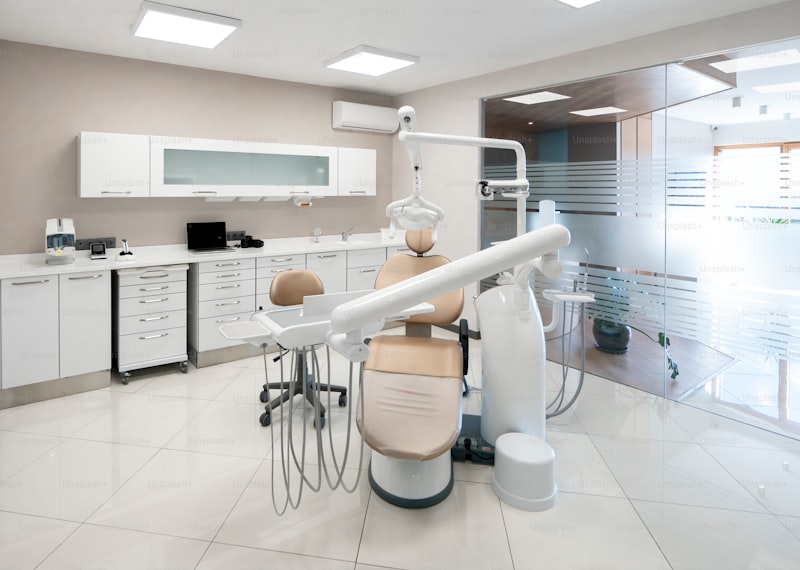Firstly, maintaining good oral hygiene is crucial. Just like brushing your natural teeth, it’s important to clean your dental appliances regularly. Brush your braces, retainers, or dentures thoroughly after meals with a soft-bristled brush and mild toothpaste. This helps remove food particles and plaque that can contribute to bad breath.
Furthermore, don’t forget to clean your mouth thoroughly before putting your dental appliances back in. Brush your natural teeth, gums, and tongue to reduce the bacteria in your mouth that can transfer to your appliances.
In addition to brushing, consider using an antibacterial mouthwash. Rinse your mouth and your dental appliances with an alcohol-free mouthwash to kill bacteria and freshen your breath. This simple step can make a big difference in reducing bad breath throughout the day.
Another tip is to stay hydrated. Drinking plenty of water helps wash away food particles and bacteria that can accumulate in your mouth and on your appliances. Plus, it keeps your mouth moist, which reduces the breeding ground for odor-causing bacteria.

Regular visits to your dentist are also essential. They can professionally clean your dental appliances and check for any issues that could be contributing to bad breath. Your dentist can also give you personalized advice on how to care for your specific dental appliances to prevent bad breath effectively.
By following these tips and making oral hygiene a priority, you can say goodbye to bad breath caused by your dental appliances and hello to fresh breath and increased confidence! Remember, a little effort in caring for your appliances goes a long way in maintaining your oral health and overall well-being.
Fresh Breath Tips: Mastering Oral Hygiene with Dental Appliances
When it comes to keeping your breath fresh and your oral hygiene in top shape, dental appliances play a crucial role. From toothbrushes to mouthwash and beyond, these tools are essential for maintaining a healthy mouth and preventing bad breath. Let’s dive into some expert tips on how to master oral hygiene with the right dental appliances.
First off, your toothbrush is your best friend in the fight against bad breath. Opt for a soft-bristled brush and replace it every three to four months to ensure effectiveness. Brushing at least twice a day, especially after meals, helps remove food particles and plaque that can cause odors. Remember, gentle circular motions and reaching all surfaces of your teeth are key!
Next, don’t forget about your tongue. It’s a hotspot for bacteria buildup, which can lead to unpleasant odors. Use a tongue scraper or your toothbrush’s backside to gently clean your tongue after brushing your teeth. This simple step can make a big difference in keeping your breath fresh throughout the day.
Now, let’s talk about dental floss and why it’s non-negotiable. Flossing once a day helps remove plaque and food particles from between your teeth and along the gum line, where your toothbrush can’t reach effectively. This not only enhances oral hygiene but also contributes to fresher breath by eliminating hidden sources of odor.
Mouthwash can be a game-changer in your oral hygiene routine, providing additional protection against bad breath. Look for an antibacterial mouthwash with fluoride to kill germs and strengthen enamel. Swishing mouthwash for 30 seconds after brushing and flossing can freshen breath and give you added confidence throughout the day.
Lastly, consider adding dental appliances like water flossers or electric toothbrushes to your arsenal. Water flossers use a stream of water to clean between teeth, while electric toothbrushes often provide superior plaque removal compared to manual brushing. These tools can complement your routine and elevate your oral hygiene efforts to the next level.
With these tips and the right dental appliances, you can master oral hygiene and enjoy the confidence of fresh breath every day. Remember, consistency is key, so stick to your routine and consult your dentist for personalized advice on maintaining optimal oral health.
Say Goodbye to Bad Breath: Essential Tips for Dental Appliance Users
Firstly, maintaining impeccable oral hygiene is key. Brushing your teeth after every meal, and especially after consuming sugary or sticky foods, helps prevent food particles from lingering in your appliance and causing odor. Don’t forget to floss daily and use an antibacterial mouthwash to reach areas that brushing might miss.
Regular visits to your dentist are essential. They can clean hard-to-reach spots on your appliance and detect any issues early on. Remember, a healthy mouth is less likely to harbor bacteria that cause bad breath.
Hydration plays a crucial role too. Drinking plenty of water helps wash away food particles and bacteria that can lead to odor. Plus, a well-hydrated mouth produces more saliva, which naturally cleanses your teeth and mouth.
Watch what you eat. Certain foods like garlic, onions, and strong spices can intensify bad breath. Opt for fresh fruits and vegetables, which can help neutralize odors and keep your breath fresher.
Consider cleaning your appliance regularly. Depending on the type of dental appliance you use, there are specific cleaning techniques recommended by your orthodontist or dentist. Following these instructions diligently can prevent plaque buildup and keep your appliance smelling clean.
Lastly, be mindful of habits that can worsen bad breath, such as smoking or consuming excessive amounts of alcohol. These can dry out your mouth and contribute to odor-causing bacteria.
By incorporating these tips into your daily routine, you can say goodbye to bad breath and embrace the confidence that comes with a fresh, clean smile. Happy breathing!
Hygiene Hacks: Keeping Bad Breath at Bay with Dental Devices
Do you ever worry about the freshness of your breath? Bad breath, or halitosis, can be a real confidence killer in social and professional settings. But fear not – there are effective hygiene hacks that can help you keep bad breath at bay, and they involve some ingenious dental devices.
One of the top contenders in the battle against bad breath is the tongue scraper. This small but mighty tool is designed to gently remove bacteria and debris from the surface of your tongue, where odor-causing compounds can linger. By incorporating a tongue scraper into your daily oral hygiene routine, you can significantly reduce the likelihood of waking up with morning breath or experiencing bad breath throughout the day.

Another essential dental device that aids in maintaining fresh breath is the interdental brush. These tiny brushes are perfect for cleaning between teeth and along the gum line, where food particles and plaque often hide. By using an interdental brush regularly, you can prevent the buildup of odor-causing bacteria and maintain a cleaner, healthier mouth.
For those who wear braces or struggle with food getting stuck in hard-to-reach places, a water flosser can be a game-changer. This device uses a targeted stream of water to dislodge debris and bacteria from between teeth and around dental work, offering a thorough clean that traditional flossing may not always achieve.
Maintaining fresh breath isn’t just about brushing and flossing – it’s also about using the right dental devices to tackle odor at its source. By incorporating tools like tongue scrapers, interdental brushes, and water flossers into your daily routine, you can enhance your oral hygiene efforts and enjoy the confidence that comes with a clean, fresh smile.
Combatting Odor: Effective Strategies for Dental Appliance Users
Are you among the many who use dental appliances like retainers, mouthguards, or dentures? While these devices are essential for dental health, they often come with a common concern – odor. The buildup of bacteria and plaque can lead to unpleasant smells, affecting your confidence and oral hygiene. But fear not, there are effective strategies to combat this issue and keep your dental appliances fresh and odor-free.
Firstly, regular cleaning is paramount. Just like brushing your teeth, your dental appliances require daily care. Use a soft-bristled brush and non-abrasive toothpaste to gently scrub away debris and bacteria. This simple habit not only removes odor-causing agents but also maintains the integrity of the appliance.
Additionally, soaking your dental appliance daily can make a significant difference. Denture cleaners or simple homemade solutions like a mixture of vinegar and water can effectively disinfect and deodorize. Remember to rinse thoroughly before using your appliance again.
Another tip is to maintain good oral hygiene overall. Brushing and flossing your natural teeth after meals can prevent food particles from accumulating in your appliance. This reduces the chances of bacteria growth, thereby minimizing odor buildup.
Moreover, be mindful of what you eat and drink. Certain foods and beverages like coffee, garlic, or spicy dishes can leave residue on your appliance, contributing to unpleasant odors. Drinking plenty of water throughout the day not only keeps you hydrated but also helps flush out bacteria.
Lastly, schedule regular check-ups with your dentist. They can professionally clean your dental appliance and assess its condition. They may also recommend specific products or techniques tailored to your needs for maintaining freshness and hygiene.
By incorporating these strategies into your daily routine, you can effectively combat odor associated with dental appliances. Remember, consistency is key to ensuring your smile stays fresh and confident.
Maintaining Freshness: Your Guide to Preventing Bad Breath with Dental Gear
Bad breath, scientifically known as halitosis, can be a real confidence dampener in social and professional settings. It often stems from poor oral hygiene practices or underlying health issues. However, with the right dental gear and habits, you can keep your breath fresh and your confidence soaring.
Firstly, brushing and flossing regularly are fundamental. A good toothbrush, preferably with soft bristles, reaches into crevices and along the gum line, removing food particles and plaque that can cause odors. Pair this with dental floss to clean between teeth where your brush can’t reach.
Next, consider the power of mouthwash. Opt for alcohol-free varieties that won’t dry out your mouth, as a dry mouth can contribute to bad breath. Mouthwash helps kill bacteria and freshens breath instantly, making it a handy addition to your oral hygiene routine.
For those on the go, sugar-free chewing gum can be a lifesaver. Chewing gum stimulates saliva production, which naturally cleanses your mouth and neutralizes acids produced by bacteria. Look for gums with xylitol, a natural sweetener that also fights bacteria without promoting tooth decay.
Investing in a tongue scraper is another smart move. Bacteria can accumulate on the tongue’s surface, contributing significantly to bad breath. A tongue scraper helps remove this buildup, improving oral hygiene and reducing odor-causing bacteria.
Lastly, don’t overlook regular dental check-ups. Your dentist can spot oral health issues early on and provide professional cleaning that goes beyond what you can achieve at home.
By incorporating these dental gear and habits into your daily routine, you can effectively combat bad breath and enjoy the confidence that comes with a fresh, clean mouth.
Frequently Asked Questions
Can improper hygiene with dental appliances lead to bad breath
Improper hygiene with dental appliances can contribute to bad breath. Bacteria can accumulate on appliances like retainers or dentures, causing odors if not cleaned regularly. Proper cleaning and maintenance of dental appliances are crucial to prevent bad breath.
What are the best ways to clean dental appliances to prevent bad breath
Learn effective methods for cleaning dental appliances to prevent bad breath. Discover essential techniques and tools for maintaining oral hygiene and freshness.
How often should I clean my dental appliance to avoid bad breath
Regularly clean your dental appliance to prevent bad breath. Brush it daily with a toothbrush and toothpaste, and soak it in a denture cleaner as recommended by your dentist. This routine helps eliminate bacteria and odors, keeping your breath fresh.
Are there specific foods or habits that worsen bad breath from dental appliances
Discover which foods and habits can exacerbate bad breath caused by dental appliances.
Why does my dental appliance cause bad breath
Discover why your dental appliance may cause bad breath with our concise FAQ. Learn about common reasons such as food particles trapped in the appliance, bacteria buildup, and inadequate cleaning practices. Find practical tips to maintain freshness and improve oral hygiene while using dental appliances.


